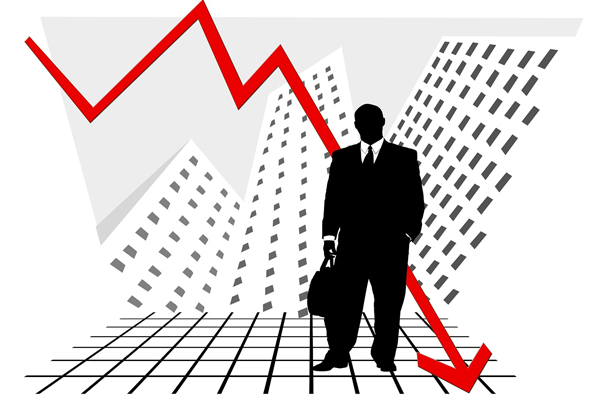Corporate scandals often coincide with a period of crisis as companies come under increasing pressure to deliver results in difficult conditions, according to Professor Guido Palazzo, Academic Director at Executive Education HEC Lausanne (and Director of the centre’s new Ethics & Compliance Certificate of Advanced Studies). He explores what lessons can be learnt from the past to minimise the likelihood of future corporate scandals, and how a new holistic approach to ethics and compliance training can help.
In the post-Covid landscape, businesses and the individuals responsible for delivering results are under unprecedented pressure. For those of us familiar with the background to corporate fraud and wrongdoing, that rings alarm bells. Because if we look back at some of the major corporate scandals of the past 20 years – from the collapse of Enron in 2001 to Volkswagen’s Dieselgate, Wells Fargo, or Boeing’s 737 Max scandal – we can see how these episodes often coincide with a period of crisis. Companies under pressure to deliver results when the conditions for continued success are unrealistic are extremely vulnerable to compliance risks. That’s why it’s not difficult to predict that the next big corporate scandals will be born right now.
So what can we learn from the past, and what new thinking and approaches can be applied to minimise the likelihood of new corporate scandals in the years to come? Over the past decade, social psychology has given us a greater understanding into how our thought processes work, how we approach problem-solving and the benefits that different ways of thinking bring in an organisational context. In all these scandals, decision makers had developed a very narrow frame of world perception, losing the ability to take a broader perspective or one that looked outside their normal frames of reference. This highlights the important role cognitive diversity plays in improving decision-making, guarding against groupthink and keeping individual over-confidence in check, and why it is a vital ingredient in helping to ensure that history does not repeat itself.
DIVERSITY & INDEPENDENCE
In his book The Wisdom of Crowds, James Surowiecki observed that “diversity and independence are important because the best collective decisions are the product of disagreement and contest, not consensus or compromise.” And in Willfully Blind, Margaret Heffernan writes: “…diversity isn’t a form of political correctness, but an insurance policy against internally generated blindness that leaves institutions exposed and out of touch.”
This reference to ‘internally generated blindness’ strikes a particular chord with me because my own research with my HEC Lausanne colleagues, Franciska Krings and Ulrich Hoffrage explores the concept of ‘ethical blindness’ and the fundamental role it plays in systematic organisational wrongdoing.
Ethical blindness is the reason otherwise ‘good’ people do bad things. Corporate scandals almost always get blamed on ‘bad apples’ when actually they are a result of contexts, cultures and leadership styles that enable or encourage individuals to do things that are dysfunctional from a behavioural, ethical or legal perspective. These behaviours become so normalised within the organisation that individuals do not view what they are doing as being wrong.

Image credit: Gerd Altmann, Pixabay
AN ETHICAL PERSPECTIVE
From an ethical perspective, the ‘internally generated blindness’ Heffernan refers to is readily apparent when you examine corporate scandals. More often than not, wrongdoing and unethical decisions mirror the culture of an organisation where these behaviours are enabled, which also helps to create an abnormal organisational context.
Tunnel vision and seeing less and less of the bigger picture is one of the early warning signs that an individual is under pressure. This can in turn lead to them losing the ability to see that what they are doing is wrong. Of course, the antidote for tunnel vision is to recognise the importance of cognitive diversity in improving decision-making and generating new ideas and creative solutions amongst other things.
But if different perspectives help to avoid group-think and tunnel-vision, there is also evidence that it is linked to more ethical group decision-making. A 2012 study Ethical Decision-Making: Group Diversity Holds the Key, (DeGrassi, Morgan, Walker, Wang & Sabat) suggests a positive correlation between racial diversity and ethical decision-making. It also found that that heterogeneous groups make more ethical decisions than homogeneous groups over time. “Individuals from various backgrounds bring unique perspectives, experiences, and information when considering ethical issues that may be otherwise absent in homogenous groups,” they suggest.
SPEAK–UP CULTURE
Another priority when it comes to helping to safeguard an organisation against corporate wrongdoing is to foster a ‘speak up culture’ in which people feel able to share tell-tale warning signs, challenge inappropriate behaviour and call people out, even if their perspectives differ from the majority view. If people feel free to speak up and express their authentic selves and values, it’s more likely that any problematic ethical and compliance issues can be addressed well before they have the chance to develop into full blown scandals. Equally, if whistle-blowers have a supportive environment where they can share their concerns, they are less likely to take this information outside the organisation.
I have also noticed that corruption can go hand in hand with harassment, bullying or sexually inappropriate behaviour. There is an interesting similarity between large-scale corporate scandals and small, perhaps seemingly harmless moral transgressions. In the same way that sexual harassment can start with a joke or a remark that goes unchallenged, signalling that the behaviour is acceptable, more serious, darker unethical actions and behaviours can also start with small steps and snowball into something much larger. Here again, preventative measures can be taken early.
A MULTI-DISCIPLINARY APPROACH
Traditionally, compliance training and development has been technical and regulatory – what are the rules, what are people allowed to do or not allowed to do, how do we demonstrate to the authorities that we did everything possible to ensure that people understand the laws and regulations? However, what’s becoming increasingly clear is that it’s time for a multi-disciplinary approach on these issues.
This is why we have decided to launch a new executive certificate in compliance and ethics at HEC Lausanne, the first of its kind to provide the skills and tools required to better understand and manage the human side to risk. I firmly believe that the key to stamping out ethical blindness and preventing unnecessary corporate scandals is to take a collaborative approach across departments and functions. This is also why our programme is open to all executives in leadership functions who want to help embed a new and improved approach to ethics and compliance into the cultures of their organisations. Because as the scandals of the past demonstrate, diverse organisational cultures in which executives listen to a variety of perspectives when making decisions, as well as a broad set of perspectives within teams themselves, are critical factors in guarding against the emergence of circumstances that might push decision-makers towards the dark side.

AUTHOR BIOGRAPHY
Professor Guido Palazzo is Academic Director at Executive Education HEC Lausanne and Director of the centre’s new Ethics & Compliance Certificate of Advanced Studies. In his research, Professor Palazzo focuses on three main areas: the impact of globalisation on corporate responsibility, immoral decision-making and organized crime. In 2008, he won the Max-Weber Prize from the German Industry Association for his research on globalisation. He has more than 15 years of experience in consulting and training in corporate ethics management. He has worked for multinational companies such as Siemens, Volkswagen, Airbus, Johnson & Johnson, Federal Reserve Bank NY.







































